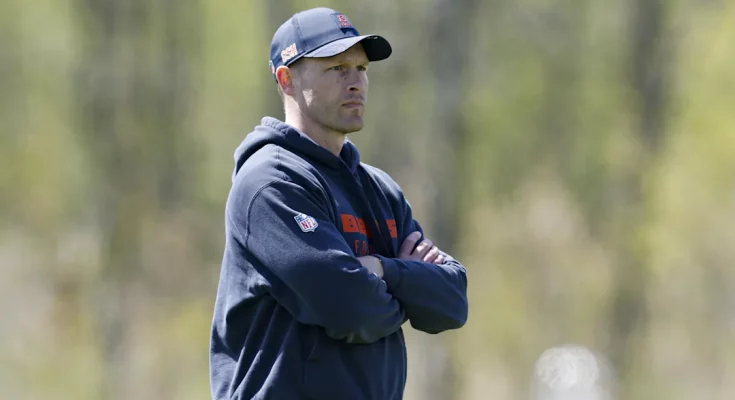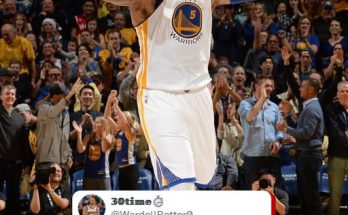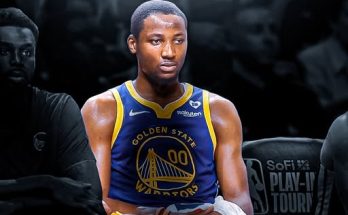In a surprising development that could shake up the NFC North, the Chicago Bears have reportedly been floated as a potential trade destination for a backup quarterback from within their own division. While the Bears have spent the offseason recalibrating their roster and doubling down on the development of their franchise quarterback, the possibility of acquiring a signal-caller from a rival team has opened up a series of questions about their strategic outlook, quarterback room depth, and long-term planning under new head coach Ben Johnson. Rumors have circulated across league circles suggesting the Bears are quietly exploring contingency plans behind starter Caleb Williams, and sources believe that one of those plans could involve a familiar face from within the division. Whether the motivation is insurance, competition, or simply forward-looking roster flexibility, this move—if completed—could spark a new chapter in one of the NFL’s most tradition-rich franchises.
The concept of trading within a division is typically a hard sell, especially when it comes to a position as critical as quarterback. Teams are reluctant to give direct aid to a rival, fearing the possibility of their former player flourishing in a competitor’s system. However, the NFL is also a league that never sleeps when it comes to player movement, and recent history has shown that front offices will occasionally take that leap if the terms are right and the circumstances demand it. For the Bears, the idea of acquiring a backup quarterback—particularly from an NFC North opponent—suggests that they are not entirely content with their current depth chart. It also points to the possibility that the organization views the backup quarterback position not as a throwaway slot but as a strategic asset, especially in a season where expectations are suddenly higher.
Caleb Williams, the No. 1 overall pick in the 2024 NFL Draft, is undoubtedly the focal point of Chicago’s present and future. All eyes are on his transition from USC star to NFL franchise savior, and early signs out of training camp indicate that Williams has been as advertised in terms of leadership, arm talent, and command of the huddle. But even with all the promise Williams brings to the Bears, the harsh realities of the NFL necessitate preparation for all possibilities. Injuries, growing pains, and the general unpredictability of a rookie quarterback’s development curve mean that Chicago cannot afford to put all its eggs in one basket. A veteran backup who knows the division, understands the speed of NFL defenses, and can step in without derailing a season would be a major asset, especially if the Bears intend to be competitive this year.
Speculation has swirled around a few key names, most notably Minnesota’s Nick Mullens and Detroit’s Nate Sudfeld, both of whom are experienced and have shown flashes of competency in spot duty. Mullens, in particular, has a reputation as a reliable fill-in who has started games for the 49ers and has spent time learning under different offensive coordinators, giving him a flexible understanding of multiple systems. While not flashy, Mullens is the type of quarterback who could hold down the fort in the event of an emergency. Sudfeld, on the other hand, has been quietly praised for his locker-room presence and film-room acumen. Though his playing time has been limited, his knowledge of the NFC North through his time with the Lions could give Chicago a strategic edge should they choose to bring him in.
Another name that’s quietly been mentioned in back-channel NFL conversations is Jordan Love’s backup in Green Bay, Sean Clifford. Drafted in 2023 out of Penn State, Clifford has a reputation for being a gamer—tough, coachable, and willing to grind. While his on-field experience is minimal, the Packers have invested in him as a long-term developmental piece, which might make them reluctant to part ways unless the return justifies it. For the Bears, Clifford would represent a different kind of acquisition—a young, moldable quarterback who could serve as both developmental depth and a potential trade chip down the road. While it’s less likely that Green Bay would do business with their long-time rival, crazier things have happened in the NFL.
Adding fuel to the fire are the recent comments made by Bears General Manager Ryan Poles, who stated during a media scrum that the team would “always evaluate options to improve every position, including quarterback.” While he didn’t directly acknowledge any specific names, the fact that the Bears are open to making additions even after securing a generational talent in Williams speaks volumes about their mindset. It’s not just about the now—it’s about building a sustainable ecosystem around their quarterback, including mentors, motivators, and even future coaches-in-waiting wearing a uniform.
From a schematic standpoint, having a veteran backup who knows how to read defenses and make pre-snap adjustments can be invaluable to a rookie’s growth. Many top quarterbacks—from Patrick Mahomes to Justin Herbert—have credited their backup quarterbacks for helping them accelerate their mental understanding of the game. A player who has faced defenses like the Packers’ 3-4 look or Detroit’s aggressive blitz packages offers real-time knowledge that can be transferred to game prep. With Ben Johnson’s system emphasizing quick reads, play-action deception, and tight-window throws, having a backup who understands the lay of the land is more than just a bonus—it’s potentially the difference between staying afloat or sinking during a tough stretch of the season.
Moreover, from a locker room perspective, competition at every position is a key tenet of Ben Johnson’s approach. He’s brought a new culture of accountability and high standards to Halas Hall. In that vein, having a backup quarterback who pushes Caleb Williams during practice, who corrects mistakes in meetings, and who brings a professional mindset every day can only help foster the kind of internal competition that great teams thrive on. The NFL is increasingly a meritocracy, and Williams himself has stated that he wants to be “coached hard” and “held to a championship standard.” Bringing in someone who has battled through the NFL’s trenches can reinforce that ethos.
Of course, any trade involving a division rival comes with caveats. The price tag will likely be higher than if the Bears were negotiating with an AFC team, and the scrutiny will be relentless. If the quarterback the Bears acquire flames out or performs poorly in a pinch, critics will be quick to pounce on the front office’s decision. But on the flip side, if that player becomes an integral part of a playoff push or serves as an invaluable guide for Williams, the front office will earn major credit for foresight and boldness.
Financially, the Bears are in a position of strength. They have the cap space to absorb a backup quarterback’s contract, especially if the player is on a rookie or veteran-minimum deal. That flexibility allows them to pursue trades without having to make major sacrifices elsewhere on the roster. It’s a luxury not every team has, and it gives Chicago an upper hand if bidding becomes competitive. Additionally, the Bears still possess a full slate of draft picks for future years, which means they can afford to part with a late-round selection if it nets them a player who adds genuine value.
Looking at the broader picture, this rumored interest fits into a larger narrative of the Bears operating with intention and aggression this offseason. From hiring one of the league’s most innovative offensive minds in Ben Johnson, to overhauling the wide receiver corps, and now potentially targeting quarterback depth, Chicago is signaling to its fans and the league that the rebuild is over—the time to compete is now. Acquiring a quarterback from a division rival may seem like a minor move on paper, but it’s emblematic of a team that is leaving no stone unturned in its pursuit of relevance, and eventually, excellence.
As training camp rolls on and preseason action heats up, the quarterback room will remain one of the most closely watched areas in Chicago. While the spotlight rightly shines on Caleb Williams, what happens behind him could be just as critical to the Bears’ success in 2025. If these trade whispers materialize, they will mark yet another bold move in a growing list of transactions that could define the Ben Johnson era. Until then, the NFC North will watch closely, and the Windy City waits to see if a new quarterback is coming in through the back door, bringing with him not just experience, but the keys to deeper dreams.



